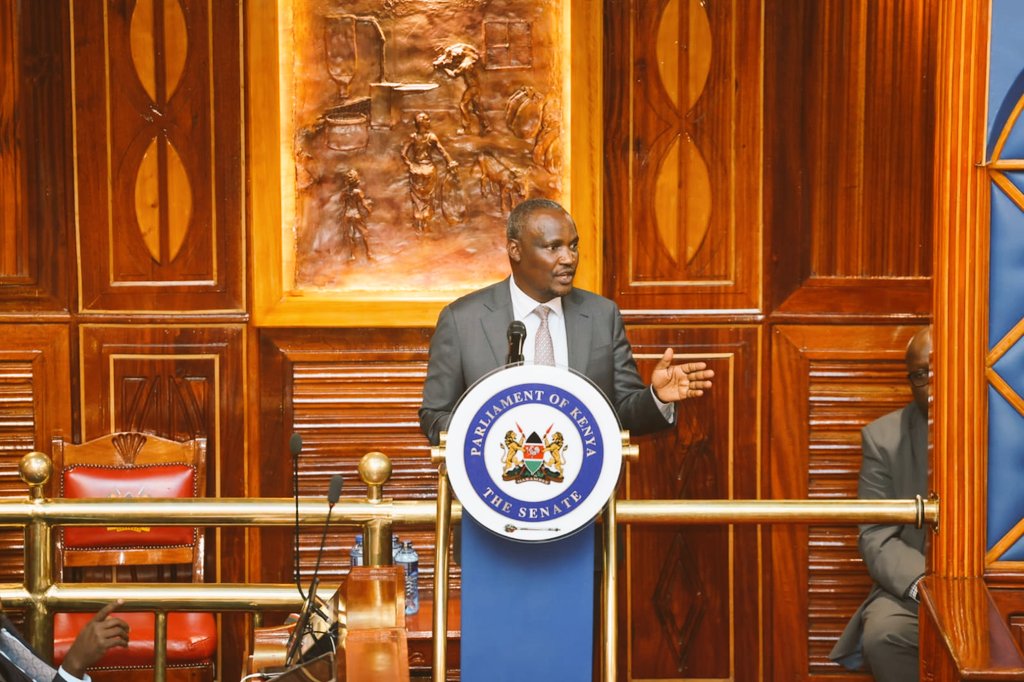

Treasury CS John Mbadi now says that the United States withdrew support valued at an estimated Sh52.3 billion for the different programs it undertook in Kenya.
While responding to questions at the Senate, Mbadi said the value is an estimate of funding requirement for the programmes.
“The amount for the said programs is approximately US$158.9 million, while the total assistance is approximately US$405.4 million for FY 2024/25 from USAID, which includes other sectors such as health, economic growth, water, and environment,” he said.
The Cabinet Secretary, however, noted that while the support was aligned to the government’s medium-term plan and supplemented state investments, it is not reflected in the government’s budget.
He added that the Treasury is also not accountable for it as it only facilitates tax exemptions.
“Hon. Speaker, it is important to note that while Official Development Assistance (ODA) from USAID is aligned to our medium-term plan, they supplement government investments and largely benefit the people of Kenya. USAID contracts implementing partners (international and local Non-State Actors and private sector) are the entities who bear the fiduciary responsibilities.
“USAID funds are not disbursed nor accounted for through government financial systems. Therefore, USAID support is not reflected in the budget. The National Treasury plays a subsidiary role in facilitating tax exemption,” Mbadi said.
He was responding to questions by Kakamega Senator Boni Khalwale.
On what measures the government has taken to mitigate the situation, Mbadi said the government is reviewing the existing budget in state departments to prioritise funding of essential services.
“We are conducting a review of our existing budget allocations to prioritize funding for essential services in sectors such as health, education, governance, and food security to be included in Budget Estimates Supplementary III.
“Likewise, County Governments are expected to act accordingly to ensure uninterrupted service delivery for devolved functions.”
The CS said that the government is also engaging with other development partners to explore opportunities for additional funding and technical assistance to plug the gap.
“For instance, the universal healthcare agenda, reforms under the Social Health Authority (SHA): vulnerable populations will gain access to a broad spectrum of benefits, including screening, dialysis, kidney transplants, essential medications, and vital medical equipment and plug the gap by some of the interventions that were being performed by USAID.
He added that the government is doing what it can to reduce reliance on foreign aid.
The administration of US President Donald Trump introduced sweeping policy reforms, including the suspension of United States Agency for International Development (USAID) programs worldwide.
The drastic decision is feared to have severe economic repercussions, particularly in developing nations where thousands rely on USAID for food security, healthcare, and poverty alleviation efforts.




![[PHOTOS] Ruto shares a glimpse into his farming passion](/_next/image?url=https%3A%2F%2Fcdn.radioafrica.digital%2Fimage%2F2025%2F03%2Fc3d9d9f8-3051-457e-93bf-e70e6d01b60a.jpg&w=3840&q=75)

